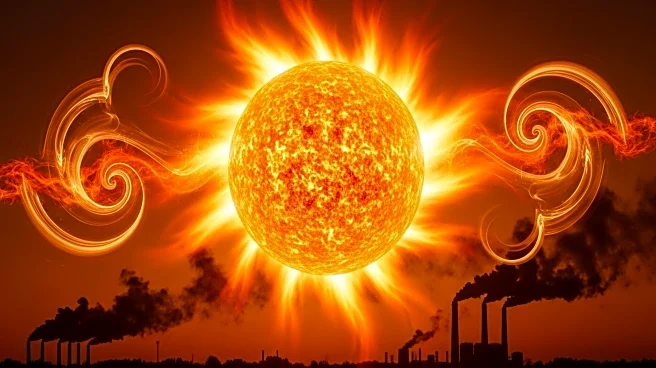What's Happening?
The world is experiencing intense heat waves, contributing to record-breaking temperatures across both hemispheres. These extreme weather conditions are largely driven by the continued emissions of heat-trapping gases from fossil fuels. The University of Maine Climate Change Institute and the National Centers for Environmental Prediction have tracked these temperature anomalies, noting significant deviations from historical averages. The global heat wave has affected various regions, leading to hotter summers and winters, and raising concerns about the long-term impacts of climate change.
Why It's Important?
The ongoing heat wave highlights the urgent need for addressing climate change and reducing greenhouse gas emissions. The extreme temperatures pose risks to public health, agriculture, and ecosystems, potentially leading to food shortages and increased mortality rates. The situation underscores the importance of international cooperation in implementing sustainable practices and transitioning to renewable energy sources to mitigate the effects of climate change.
What's Next?
Governments and environmental organizations are expected to intensify efforts to combat climate change, focusing on reducing emissions and promoting sustainable energy solutions. Public awareness campaigns may be launched to educate communities about the importance of environmental conservation and the role of individual actions in reducing carbon footprints. Policy changes and international agreements could be pursued to address the global climate crisis.
Beyond the Headlines
The heat wave raises ethical questions about the responsibility of developed nations in contributing to climate change and the disproportionate impact on vulnerable populations. It highlights the need for equitable solutions that consider the social and economic disparities in addressing environmental challenges. The situation calls for a reevaluation of global priorities and the integration of climate justice into policy-making processes.










